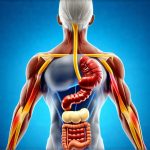The intricate relationship between our gut microbiome – the vast community of microorganisms residing in our digestive tract – and physical performance is rapidly gaining recognition within sports science and exercise physiology. For decades, training adaptations were largely attributed to physiological changes within muscles, cardiovascular systems, and respiratory functions. However, emerging research increasingly demonstrates that a healthy and diverse gut plays a surprisingly significant role in optimizing these adaptations, influencing everything from energy metabolism and inflammation management to immune function and even mental fortitude. Understanding this connection is no longer just for elite athletes; anyone seeking to maximize their fitness potential can benefit from nurturing their gut health as an integral part of their training regime.
The ‘second brain’ – a term often used to describe the gut due to its extensive neural connections with the central nervous system – isn’t merely a digestive organ. It’s a dynamic ecosystem that profoundly impacts systemic physiology, and this impact is amplified during periods of intense physical stress like endurance exercise. The demands placed on the body during strenuous activity can disrupt the delicate balance within the gut microbiome, leading to potential issues like increased intestinal permeability (“leaky gut”), altered immune responses, and compromised nutrient absorption. These disruptions, in turn, can hinder recovery, increase susceptibility to illness, and ultimately limit performance gains. Therefore, proactively supporting gut health isn’t about adding an extra step to your fitness journey; it’s about optimizing the foundation upon which all other adaptations are built. Understanding gut inflammation is key here.
The Gut Microbiome & Exercise Adaptation: A Two-Way Street
The relationship between exercise and gut health is far from one-directional. While intense physical activity can disrupt the microbiome, a healthy and diverse gut microbiome also enhances our capacity to adapt to exercise stress. This reciprocal interaction is crucial for understanding how to leverage this connection for improved performance. The composition of your gut microbiome directly influences how efficiently you utilize energy sources, process metabolic waste products, and regulate inflammation – all critical factors in endurance and adaptation.
- A diverse microbiome generally indicates better resilience and adaptability.
- Specific bacterial species are associated with enhanced athletic performance, though research is ongoing to pinpoint these relationships definitively.
- Gut bacteria produce short-chain fatty acids (SCFAs) like butyrate, propionate, and acetate, which have anti-inflammatory properties and provide an energy source for colonocytes, supporting gut barrier integrity.
The impact of exercise on the gut microbiome is multifaceted. High-intensity or prolonged endurance events can reduce blood flow to the digestive system, leading to intestinal hypoxia (oxygen deprivation). This can compromise gut barrier function, allowing bacterial products to enter the bloodstream and triggering an immune response. Furthermore, stress hormones released during exercise can also affect microbial composition and motility. However, regular moderate exercise has been shown to increase microbiome diversity and improve gut health, demonstrating a clear ‘Goldilocks’ effect – too little or too much exercise can be detrimental, while just the right amount is beneficial. To learn more about how this affects your body, explore the role of bile in digestion.
The key takeaway here isn’t to avoid intense training but rather to understand how to mitigate the negative impacts on your gut and simultaneously nurture its positive contribution to adaptation. This involves strategies like proper hydration, strategic nutrition (discussed further below), stress management techniques, and potentially targeted probiotic or prebiotic supplementation based on individual needs. Prioritizing gut health is becoming an essential component of a holistic training approach. Consider also building a digestive routine to support long-term well being.
Nutritional Strategies for Gut Health & Endurance
The food we consume directly fuels not only our muscles but also our microbiome. Dietary choices have a profound impact on the composition and function of the gut, influencing its ability to support exercise adaptation. A diet rich in fiber is fundamental – fiber serves as the primary food source for beneficial gut bacteria, promoting their growth and diversity. However, timing and type are important considerations, particularly around training sessions.
Consuming easily digestible carbohydrates before, during, and immediately after prolonged endurance events can minimize stress on the digestive system and provide readily available energy. Conversely, excessive intake of processed foods, refined sugars, and unhealthy fats can disrupt the microbiome and contribute to inflammation. Focusing on whole, unprocessed foods – fruits, vegetables, whole grains, lean proteins, and healthy fats – is paramount.
- Prebiotics are non-digestible fibers that selectively feed beneficial bacteria in the gut. Sources include onions, garlic, leeks, asparagus, bananas, and oats.
- Probiotics are live microorganisms that, when consumed in adequate amounts, confer a health benefit on the host. They can be found in fermented foods like yogurt, kefir, sauerkraut, kimchi, and kombucha.
- Hydration is also crucial for gut health; dehydration can negatively impact microbial diversity and gut barrier function.
It’s important to note that probiotic supplementation isn’t a one-size-fits-all solution. The optimal probiotic strain varies depending on individual needs and goals. While some strains may enhance endurance performance, others might be more effective for improving gut barrier integrity or reducing inflammation. Consulting with a registered dietitian or healthcare professional can help determine the most appropriate course of action. You should also understand the effects of antibiotics on your gut health.
Fueling the Gut During Ultra-Endurance Events
Ultra-endurance events, such as marathons, triathlons, and ultra-runs, place an extreme stress on both the body and the gut. The prolonged physical exertion, dehydration, and altered blood flow can significantly disrupt gut function, leading to gastrointestinal distress – a common limiting factor for many athletes. Managing this requires a highly strategic nutritional approach focused on minimizing gut irritation and maximizing nutrient absorption.
- Prioritize low-fiber foods during the event itself to reduce digestive load.
- Experiment with different fueling strategies during training to identify what works best for your body. This includes testing various gels, chews, sports drinks, and real food options.
- Stay consistently hydrated throughout the event, even if you don’t feel thirsty. Electrolyte balance is also crucial.
- Consider incorporating easily digestible carbohydrates at regular intervals to maintain energy levels without overwhelming the digestive system.
The Role of SCFAs in Exercise Recovery
Short-chain fatty acids (SCFAs) are metabolic byproducts produced when gut bacteria ferment dietary fiber. These compounds play a vital role in exercise recovery and adaptation. Butyrate, in particular, is known for its ability to strengthen the gut barrier, reduce inflammation, and provide energy for colonocytes, promoting overall gut health.
- SCFAs can enhance glycogen resynthesis after exhaustive exercise, accelerating muscle recovery.
- They also modulate immune function, helping to dampen inflammatory responses triggered by intense training.
- Increasing dietary fiber intake is a primary strategy for boosting SCFA production.
- Prebiotic supplementation can further support SCFA production and gut health.
Gut Permeability & Immune Function in Athletes
Increased intestinal permeability – often referred to as “leaky gut” – is common among endurance athletes, particularly those engaged in high-intensity or prolonged exercise. This occurs when the tight junctions between cells lining the intestinal wall become compromised, allowing undigested food particles, bacterial toxins, and other harmful substances to enter the bloodstream. This can trigger systemic inflammation, suppress immune function, and contribute to fatigue.
- Prolonged endurance events, dehydration, and stress all increase gut permeability.
- A diet rich in fiber, probiotics, and anti-inflammatory foods can help strengthen the gut barrier and reduce permeability.
- Managing stress levels through techniques like meditation or yoga can also minimize its impact on gut health.
- Identifying food sensitivities and eliminating triggering foods can further support gut integrity. Protecting gut barrier function is fundamental for maintaining immune resilience and optimizing recovery. This ties directly into understanding gut health in food reactions. And finally, don’t underestimate the gut-brain axis!


















